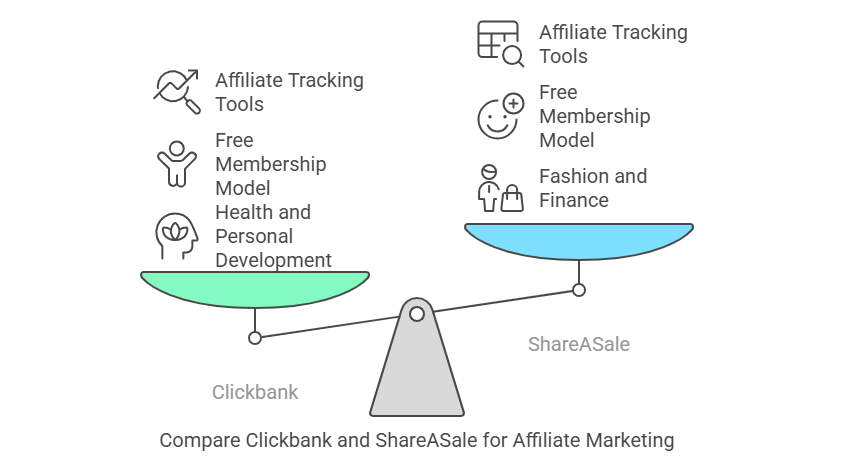
Understanding Affiliate Networks
The landscape of affiliate marketing is rich with options, and two of the giants that often stand out are Clickbank and ShareASale.
These platforms serve as crucial intermediaries, linking advertisers with prospective affiliates. By providing a framework for managing affiliate relationships, both networks play pivotal roles in the success of countless marketing campaigns.
Similarities Between Clickbank and ShareASale
Both Clickbank and ShareASale operate on a free membership model for affiliates, opening doors for everyday users to dive into affiliate marketing without an upfront cost.
They each offer a diverse range of product categories — Clickbank thrives in niches like health and personal development, while ShareASale showcases shopping categories from fashion to finance.

Moreover, the functionality of both networks includes affiliate tracking and comprehensive reporting features. This allows affiliates to monitor their sales performance effectively, helping them optimize their marketing strategies and maximizing their earning potential.
The global reach of both networks is another significant advantage, allowing affiliates to market to a wide audience.
Differences That Matter
While both networks are free for affiliates, their structures for merchants diverge significantly. Clickbank engages a straightforward pricing model with a one-time activation fee and a minimal processing fee, making it attractive to new merchants.
In contrast, ShareASale charges a hefty monthly subscription, in addition to an activation fee, which might deter smaller businesses.
Furthermore, the user interfaces of these platforms differ, leading to varying experiences for users. Clickbank is often described as simpler and more user-friendly, particularly for beginners. In contrast, ShareASale offers richer features but comes with a steeper learning curve that may require more time to navigate effectively.
Choosing the Right Network for You
As you venture into the world of affiliate marketing, weighing the right platform is crucial. Consider your niche, budget for merchant fees, and the kind of support you need from the network.
Clickbank’s ease of entry can be appealing to novices, while ShareASale’s extensive offer pool might suit those seeking high-value partnerships.
Ultimately, the choice between Clickbank and ShareASale boils down to what you aim to achieve in your affiliate marketing journey. Your unique goals and marketing strategies will dictate which network will be most beneficial for you.
 Add Row
Add Row  Add
Add 




Write A Comment